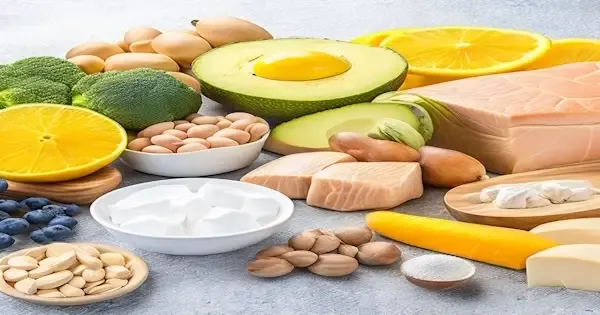Vitamin D Foods:
Vitamin D is a crucial nutrient that plays a vital role in various bodily functions. It is well-known for its ability to support bone health by aiding in calcium absorption. Additionally, it is involved in regulating the immune system and promoting overall well-being. While our bodies can produce vitamin D through exposure to sunlight, it is also important to obtain it from dietary sources. In this article, we will explore a variety of vitamin D foods that can help you meet your nutritional needs and enjoy the benefits of this essential nutrient.
 |
| Vitamin D Foods |
Table of Contents
Introduction
Vitamin D, often referred to as the "sunshine vitamin," is a fat-soluble vitamin that is essential for maintaining optimal health. It plays a crucial role in the body's absorption of calcium and phosphorus, which are vital for strong bones and teeth. Moreover, vitamin D is known to support immune function, promote muscle strength, and regulate cell growth and division.
While our bodies can produce vitamin D when exposed to sunlight, factors such as geographical location, seasonal changes, and the use of sunscreen can limit its synthesis. Hence, it becomes important to obtain vitamin D through dietary sources.
Benefits of Vitamin D
Vitamin D offers numerous health benefits, some of which include:
- Promoting strong and healthy bones
- Boosting immune system function
- Supporting muscle strength and function
- Regulating blood pressure
- Enhancing mood and reducing the risk of depression
- Aiding in calcium absorption and utilization
Sources of Vitamin D
While sunlight is a natural source of vitamin D, there are various foods that can help you meet your daily vitamin D requirements. Some of the best sources of vitamin D include:
Fatty Fish
Fatty fish like salmon, mackerel, and trout are excellent sources of vitamin D. Just a few servings per week can provide a significant amount of this essential nutrient. Whether grilled, baked, or poached, these fish make a delicious and nutritious addition to your diet.
Egg Yolks
Egg yolks are not only a versatile ingredient in many recipes but also contain vitamin D. Including eggs in your diet can contribute to your daily intake of this nutrient. Opt for organic, free-range eggs for maximum nutritional value.
Mushrooms
Did you know that certain types of mushrooms can naturally produce vitamin D? Exposing mushrooms to sunlight or ultraviolet light increases their vitamin D content. Incorporate mushrooms like shiitake and maitake into your meals to enjoy their unique flavor and potential health benefits.
Fortified Foods
Many food products are fortified with vitamin D to help individuals meet their daily requirements. These include fortified dairy products, cereals, orange juice, and plant-based milk alternatives. Check the labels when purchasing these items to ensure you're getting adequate amounts of vitamin D.
Frequently Asked Questions
Q: Can I get enough vitamin D from sunlight alone?
A: While sunlight is an important source of vitamin D, various factors can affect its synthesis in the body. These include geographic location, time of year, cloud cover, and the use of sunscreen. Therefore, it is recommended to obtain vitamin D from both sunlight and dietary sources.
Q: Are there any risks of vitamin D deficiency?
A: Yes, a deficiency in vitamin D can lead to health problems such as weakened bones, increased risk of infections, muscle weakness, and fatigue. It is important to maintain optimal vitamin D levels through a balanced diet and, if necessary, supplementation.
Q: How much vitamin D do I need daily?
A: The recommended daily intake of vitamin D varies depending on age and specific health conditions. Generally, adults require around 600-800 IU (International Units) per day. However, it is best to consult with a healthcare professional to determine the appropriate dosage for your individual needs.
Q: Can vitamin D be harmful in excessive amounts?
A: While vitamin D is essential for overall health, excessive intake can lead to toxicity. This usually occurs through the overuse of supplements. It is important to follow the recommended daily intake guidelines and consult with a healthcare professional before starting any supplementation regimen.
Conclusion
Vitamin D is a vital nutrient that plays a significant role in supporting various aspects of our health. Incorporating vitamin D-rich foods into your diet can help you maintain optimal levels of this essential vitamin and enjoy the associated benefits. Whether through fatty fish, eggs, mushrooms, or fortified foods, there are plenty of delicious options to choose from. Remember to strike a balance between sunlight exposure and dietary intake to meet your daily vitamin D requirements. Prioritize your health by making informed choices and ensuring you have adequate vitamin D in your life.


